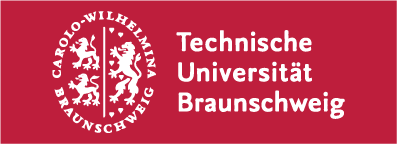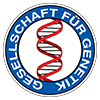
The conference
The current conference entitled “Genetics of Inflammation and Infection” is dedicated to shed light on fundamental genetic mechanisms of inflammatory and infectious events and the involved bacterial, viral and fungal pathogens. Sparked by the current global pandemic of COVID-19, the field of infection genetics experiences a rapid progress demanding an intense exchange of experience and knowledge.
Accompanying vivid scientific discussions will foster a common understanding of fundamental and newly evolving principles of inflammatory and infectious processes and stimulate novel ideas. Therefore, the scientific program of this conference is not only exciting for experts in the field but also rewarding for everybody interested in infection genetics.
Host of this conference is the Life Sciences Faculty of the Technische Universität Braunschweig with its key research area in infection and drug research. Together with the Helmholtz Centre for Infection Research and the German Collection of Microorganisms and Cell Cultures (DSMZ) as a member institute of the Leibniz Association a strong local infrastructure to organize this conference is provided for this prevailing scientific topic.
The conference
The current conference entitled “Genetics of Inflammation and Infection” is dedicated to shed light on fundamental genetic mechanisms of inflammatory and infectious events and the involved bacterial, viral and fungal pathogens. Sparked by the current global pandemic of COVID-19, the field of infection genetics experiences a rapid progress demanding an intense exchange of experience and knowledge.
Accompanying vivid scientific discussions will foster a common understanding of fundamental and newly evolving principles of inflammatory and infectious processes and stimulate novel ideas. Therefore, the scientific program of this conference is not only exciting for experts in the field but also rewarding for everybody interested in infection genetics.
Host of this conference is the Life Sciences Faculty of the Technische Universität Braunschweig with its key research area in infection and drug research. Together with the Helmholtz Centre for Infection Research and the German Collection of Microorganisms and Cell Cultures (DSMZ) as a member institute of the Leibniz Association a strong local infrastructure to organize this conference is provided for this prevailing scientific topic.
The German Genetics Society (GfG)
The German Genetics Society (GfG) is a scientific organization that unites scientists from universities and research institutions as well as from industry and governmental agencies working on all aspects of genetic research. It is also a home for high school teachers and everybody interested in genetics.
The GfG fosters scientific exchange and discussion of actual as well as long-term pressing scientific questions related to the field of genetics and aims for encouraging comprehensive interdisciplinary considerations across genetic disciplines. The GfG meets this goal by regularly organizing for their members and interested guests international conferences hosting renowned experts and young academics to present their latest findings in a selected key topic of genetic research.
The German Genetics Society (GfG)
The German Genetics Society (GfG) is a scientific organization that unites scientists from universities and research institutions as well as from industry and governmental agencies working on all aspects of genetic research. It is also a home for high school teachers and everybody interested in genetics.
The GfG fosters scientific exchange and discussion of actual as well as long-term pressing scientific questions related to the field of genetics and aims for encouraging comprehensive interdisciplinary considerations across genetic disciplines. The GfG meets this goal by regularly organizing for their members and interested guests international conferences hosting renowned experts and young academics to present their latest findings in a selected key topic of genetic research.
Program
| Time | Online Main Stage | Seminar rooms |
|---|---|---|
| 09:00 | Opening Ceremony | |
| 09:15 | Plenary Session I: “Innate or Trained Immunity?” (Chair: Prof. Yang Li, HZI Braunschweig) |
Poster viewing and visit of industrial exhibition is possible during the entire day |
| 09:15 | Talk 1 – Variation and adaptation in innate immune responses (Prof. Mihai Netea/Limes, University of Bonn) |
|
| 09:45 | Talk 2 – Genes and immunity in viral hepatitis: What can we learn from antiviral treatment (Prof. Heiner Wedemeyer/Hannover MHH) |
|
| 10:15 | Coffee Break, Visit of Industrial Exhibition, Visit of Posters | |
| 10:45 | Plenary Session II: “Adaptive or Tissue-Resident Immunity” (Chair: Prof. Jochen Hühn, HZI Braunschweig) |
|
| 10:45 | Talk 1 – Generation, maintenance and activation of tissue resident T cells (Prof. Marc Veldhoen/University of Lissabon) |
|
| 11:15 | Talk 2 – Regulating intestinal immune responses to luminal antigens (Prof. Janneke Samson/Erasmus University Rotterdam) |
|
| 11:45 | Talk 3 (selected from submitted abstracts) | |
| 12:00 | Poster Flash Presentation (Session I) | |
| 12:15 | Lunch Break, Visit of Industrial Exhibition, Visit of Posters | |
| 13:00 | Poster Session I | |
| 14:00 | Plenary Session III: “Bacterial Infections I” (Chair: Dieter Jahn) | |
| 14:00 | Talk 1 – „Intracellular signalling in pathogenic bacteria“ (Prof. Ute Römling, Karolinska Inst.) |
|
| 14:30 | Talk 2 – „Stress responses of Clostridioides difficile“ (Prof. Isabelle Martin-Verstraete, Pasteur Inst.) | |
| 15:00 | Coffee Break, Visit of Industrial Exhibition, Visit of Posters | |
| 15:30 | Plenary Session IV: “Inflammasome” (Chair: Michael Steinert) |
|
| 15:30 | Talk 1 – Epithelial Inflammasomes and Gut Bacterial Infection (Prof. Mikael Sellin, Uppsala) | |
| 16:00 | Talk 2 – Inflammasomes in host response to intracellular pathogens and in the pathogenesis of diseases (Prof. Dario Zamboni, Sao Paulo, Brasilien) | |
| 16:30 | Talk 3 (selected from submitted abstracts) | |
| 16:45 | Talk 4 (selected from submitted abstracts) | |
| 17:00 | Coffee Break, Visit of Industrial Exhibition, Visit of Posters | |
| 17:30 | Max-Delbrück Lecture: How bacterial plant pathogens manipulate the host (Prof. Dr. Ulla Bonas, University of Halle-Wittenberg): |
|
| 18:30 | End of Day 1 |
| Time | Online Main Stage | Seminar rooms |
|---|---|---|
| 9:00 | Plenary Session V: “Bacterial Infections II” (Chair: Simone Bergmann) |
Poster viewing and visit of industrial exhibition is possible during the entire day |
| 9:00 | Talk 1 – Random mutagenesis to define new virulence determinants in Streptococcal pathogenesis (Prof. Marcus Fulde, FU Berlin) | |
| 9:30 | Talk 2 – Systems and synthetic biology approaches to study pneumococcal pathogenesis (Prof. Jan-Willem Veening, Univ. Lausanne) | |
| 10:00 | Coffee Break, Visit of Industrial Exhibition, Visit of Posters | |
| 10:30 | Plenary Session VI: “Neuroinflammation” (Chair: Martin Korte) |
|
| 10:30 | Talk 1 – „Microglia in Alzheimer‘s disease: the godd, the bad and the ugly“ (Prof. Michael Heneka, DZNE Bonn) |
|
| 11:00 | Talk 2 – „The effects of common genetic variants on the microglia transcriptome“ (Lotje de Witte, UMC Utrecht) |
|
| 11:15 | Talk 3 – „Respiratory viral infection, neuroinflammation and associated neurodegeneration“ (Dr. Shirin Hosseini, TU Braunschweig) | |
| 11:30 | Talk 4 (abstracts) | |
| 11:45 | Poster Flash Presentations II | |
| 12:15 | Lunch Break, Visit of Industrial Exhibition, Visit of Posters | Meet the Prof, Young Scientist Career Counceling |
| 13:00 | Poster Session II | |
| 14:00 | Plenary Session VII: “Viral Infections” (Chair: Melanie Brinkmann, Klaus Schughart) |
|
| 14:00 | Talk 1 – „Deciphering the genetics and immunology of enhanced suscpetibility to viral infections in the brain” (Prof. Trine Mogensen, Aarhus Univ.) | |
| 14:30 | Talk 2 – „Genetic and Epigenetic Determinants of Herpesvirus Latency“ (Prof. Adam Grundhoff, HPI Hamburg) | |
| 15:00 | Talk 3 – “Exploring host-virus interactions in genetically diverse Collaborative Cross mice”(Prof. Xavier Montagutelli, Pasteur Institute) | |
| 15:30 | Talk 4 (abstracts) | |
| 15:45 | Talk 5 (abstracts) | |
| 16:00 | Coffee Break, Visit of Industrial Exhibition, Visit of Posters | |
| 16:30 | Plenary Session VIII: “Fungal Infections” (Chair: Gerhard Braus) |
|
| 16:30 | Talk 1 – „The opportunistic human fungal pathogen Aspergillus fumigatus“ (Prof. Axel Brakhage, HKI Jena) | |
| 17:00 | Talk 2 – “Conserved cell-cell signaling mechanisms in filamentous fungi” (Prof. André Fleissner, TU Braunschweig) | |
| 17:30 | Talk 3 (abstracts) | |
| 17:45 | Closing Remarks and Poster Prizes | |
| 18:00 | End of Conference |
About Brunswick
The city of Brunswick was founded by Henry the Lion and was shaped over the centuries by the Guelphs and the Hanseatic League. Today, Braunschweig is the second largest city in Lower Saxony with a population of around 250,000. The city is considered a lively cultural city and the center of one of the two most research-intensive regions in Europe. It is also home to the Technical University of Brunswick, which dates back to the Collegium Carolinum founded in 1745. The Technical University of Brunswick is home to 120 institutes and seminars. In addition, it is attended by approximately 20,000 students. The Technical University of Brunswick is also a member of the association of the nine leading technical universities in Germany.

